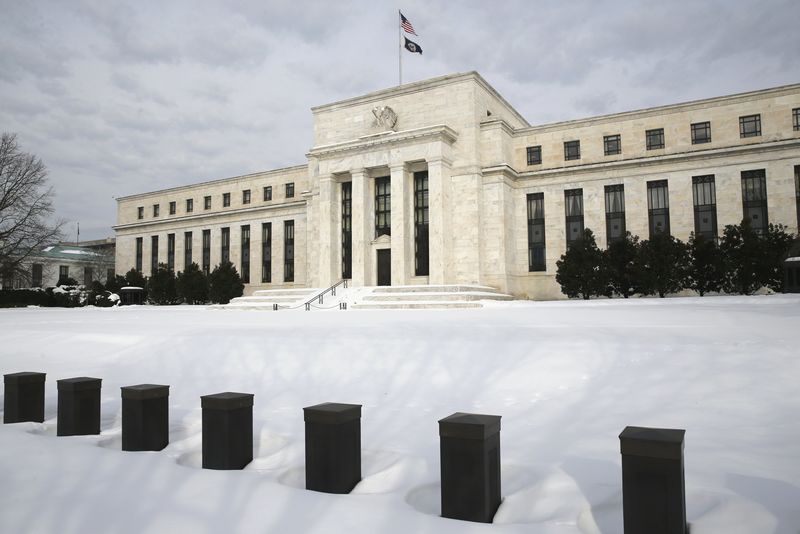By Howard Schneider and Jason Lange
WASHINGTON (Reuters) - Even as the Federal Reserve began raising interest rates in December its message was clear: it wanted to keep monetary conditions loose and felt the United States still needed accommodation to keep a modest recovery underway.
Now, markets seem to have taken matters into their own hands. A range of financial and survey data show borrowing money has become more difficult for big and small businesses across the country, a reflection of heightened risk aversion following a sell-off in global markets as well as concerns about an overall economic slowdown.
It matters to the Fed how long this goes on and what effect it has on the real economy.
Friday’s payrolls report will provide an important test of how well the domestic economy is pressing through a series of related difficulties: a potential slowdown in global demand has undercut stock prices, which in turn has raised credit spreads and borrowing conditions in the hard-hit energy sector and beyond.
Policymakers have already said the run-up in borrowing costs, rising credit spreads and other indicators of financial tightening could sideline their rate hike plans.
"That tightening has got to be taken into account because it has some effect on underlying economic conditions," Dallas Fed President Robert Kaplan said in a recent interview with Reuters where he said the Fed needed time to weigh whether global financial turmoil could knock the U.S. economy off track.
In a recent Reuters poll, economists expect an additional 190,000 jobs were added in January. That's a comedown from the nearly 300,000 jobs created in December, but still strong, and from the Fed's perspective enough to indicate the labour market continues to grow tighter.
The Fed estimates that the economy needs to add roughly 80,000 jobs per month to account for population growth, and anything beyond that means the unemployment rate moves down or sidelined workers move back into jobs.
The issue facing the central bank is how long that will continue. A recent Reuters analysis showed companies across the economy plan to cut back on capital spending this year, a potential drag on growth, jobs and income.
MISSING THE CYCLE?
Domestic consumption, the key prop for recent economic growth, has shown signs of slowing and personal savings rates have risen. Forward-looking data like rail shipments have declined and overall growth ebbed at the end of 2015.
"The Fed may well have missed the business cycle entirely... The financial cycle seems to have turned as well," former Fed governor Kevin Warsh said of the central bank's decision to begin raising rates in December, after seven years near zero. "The economy has chronically underperformed what they predicted."
In a statement from its January policy meeting, the Fed said that monetary policy "remains accommodative," and that the economy would therefore "expand at a moderate pace and labour market indicators will continue to strengthen."
But Fed officials who said their quarter point hike would have little impact on lending and credit must now assess what markets are doing on their own.
Banks tightened standards for U.S. commercial and industrial loans between October and December for the second straight quarter, the longest stretch of tightening since late 2009 in the first months after the recession, according to the Fed's Senior Loan Officer Opinion Survey released on Monday.
Investors also tightened the spigot for investment-grade U.S. corporations as well, according to the Bank of America (N:BAC) Merrill Lynch U.S. Corporate Index which shows corporate bond yields up 35 basis points this year relative to U.S. government debt, the widest spread since 2012.
That points to tighter borrowing conditions for companies including Walt Disney Co, which saw the spread on a 10-year bond rising 19 basis points over U.S. 10-year Treasury yields since the entertainment conglomerate issued its bond on January 5.
Demand by medium and large companies for commercial and industrial loans fell in the fourth quarter for the first time since 2012, according to Fed data, which could signal slumping expectations for future sales.
Loan demand also slumped ahead of America's last two recessions and some Wall Street analysts worry fewer loan applications and a slight increase in the pace of layoffs point to companies bracing for another downturn.

"Judging by recent market action and what’s happening in many economies around the world, it is an appropriate time to take recession risks seriously," Credit Suisse (VX:CSGN) said in a note to clients.